Can I refinance my house with solar panels? Are you a homeowner looking to save money with solar energy and wondering if you can refinance your house with solar power? Or perhaps you’re a potential homebuyer planning to purchase a house that already has solar panels, and want to know how refinancing may impact the property value of the home.
Yes, you can refinance a house with solar panel financing. The five best ways to do this in 2023 include traditional refinancing through your bank, leveraging government programs like the Home Affordable Refinance Program (HARP), using a cash-out refinance, applying for Green Mortgages, or refinancing through solar companies.
Read on as we explore 5 great ways homeowners and financially savvy buyers can refinance houses with solar panels in 2023.
Understanding different types of solar panels and their benefits
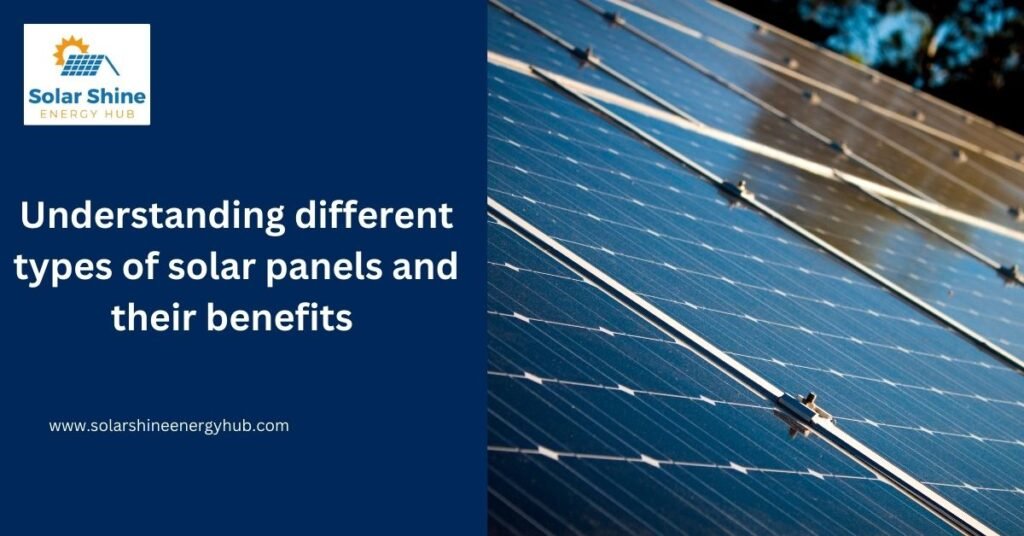
- Traditional Refinancing
Traditional refinancing with a bank allows homeowners with solar panels to possibly lower their mortgage rate. This method is widely accessible and may lead to significant savings.
- Government Programs
The government’s Home Affordable Refinance Program (HARP) aids homeowners with solar panels. It offers financing options even if the home value is less than the outstanding personal loan.
- Cash-out Refinance
Cash-out refinancing enables homeowners to use their home’s equity, including the added value from solar panels, for cash. This strategy might help finance other investments or expenses.
- Green Mortgages
Green mortgages consider clean energy savings efficiency in their secured loan monthly loan payment terms. These loans may offer better variable rates for homes with solar panels, thus lowering overall soft costs.
Determining if your home is suitable for solar installation
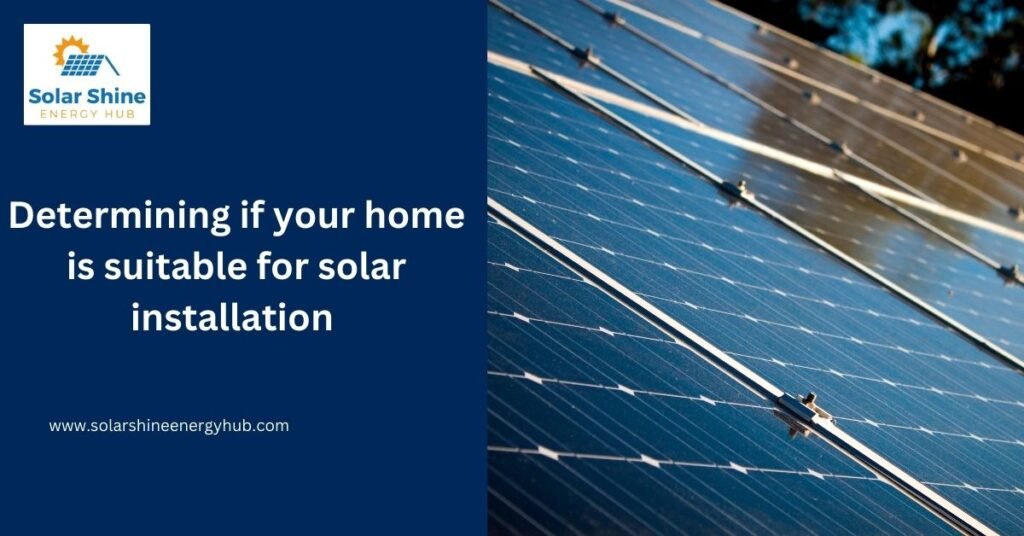
Solar Financing Companies
Solar financing companies specialize in providing loans specifically for solar panel installation and maintenance. These organizations understand the unique value of solar panels, often offering competitive rates and terms.
Making the Most of Your Solar Investment:
Efficient Installation: Ensure the installation is done correctly and efficiently to maximize energy cost generation. Professional installation services usually provide warranties and maintenance support.
Optimal Positioning: Position your solar panels in a way that they receive maximum sunlight throughout the day. The angle and direction of the panels critically influence their productivity.
Regular Maintenance: Regular cleaning and maintenance of solar panels are essential to keep them functioning optimally. Dust, debris, or snow can reduce their efficiency significantly.
System Monitoring: Use solar monitoring systems to track energy improvement consumption and production. This data can help you optimize your energy savings usage and make the most of your solar investment.
Exploring refinancing options with the help of a financial advisor
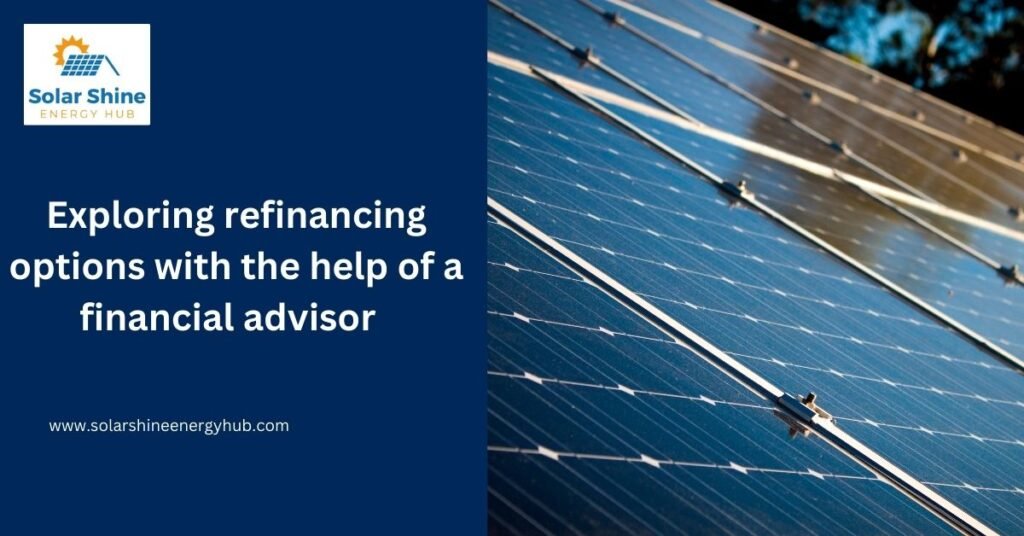
Federal Housing Administration (FHA) Loans: The FHA provides personal loans to homeowners who have installed solar panels on their properties. These personal loans are considered the added value of the property due to the solar installation during refinancing.
Home Equity Loans: Solar homeowners can consider home equity PACE loans for refinancing. The increase in property value due to the solar installation could potentially increase the available equity.
Solar-Specific Refinancing: Certain lenders specialize in solar refinancing, taking into account the unique benefits and value that solar panels bring to a property during the refinancing process.
Mortgage Refinancing: Traditional mortgage refinancing may also be available. However, it’s crucial to ensure that the lender recognizes the increased value of your property due to the solar panels.
Understanding the Long-Term Benefits of Solar Panels
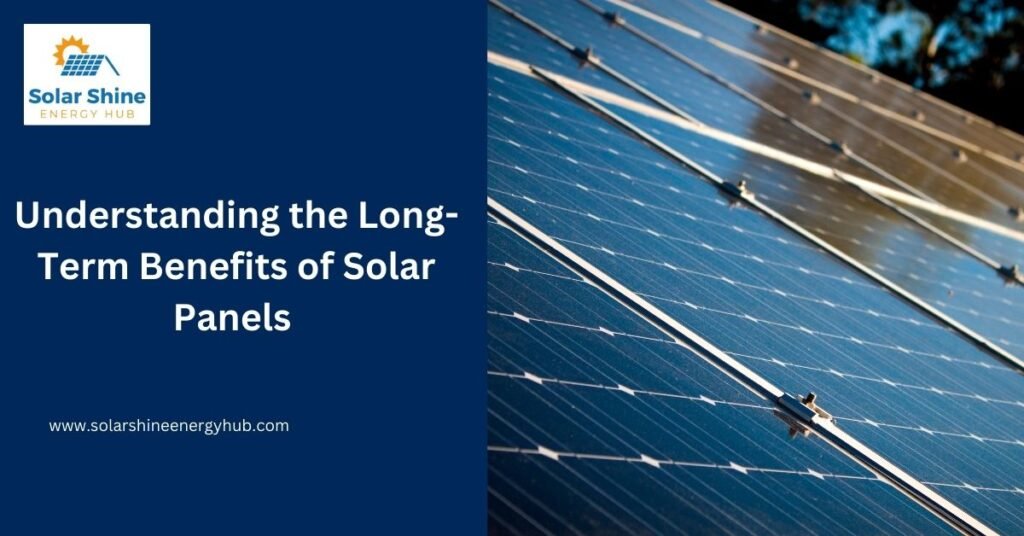
Cost-Efficiency: Over time, solar panels can significantly reduce your energy bills. The savings depend on the size of the solar system, sunlight exposure, and local electricity monthly rates.
Increase in Property Value: Homes equipped with solar energy systems have higher property values and sell more quickly than non-solar homes. The exact numbers vary, but solar can increase property value by up to 4%.
Environmentally Friendly: Solar panels reduce reliance on fossil fuels, decreasing greenhouse gas emissions. This eco-friendly choice contributes to the fight against climate change.
Energy Independence: You become less dependent on grid electricity when you install solar panels. This means you’re not as affected by fluctuations in energy upgrade prices, giving you more control over your energy use.
Financing your Solar Panel Installation through Tax Incentives and Government Programs
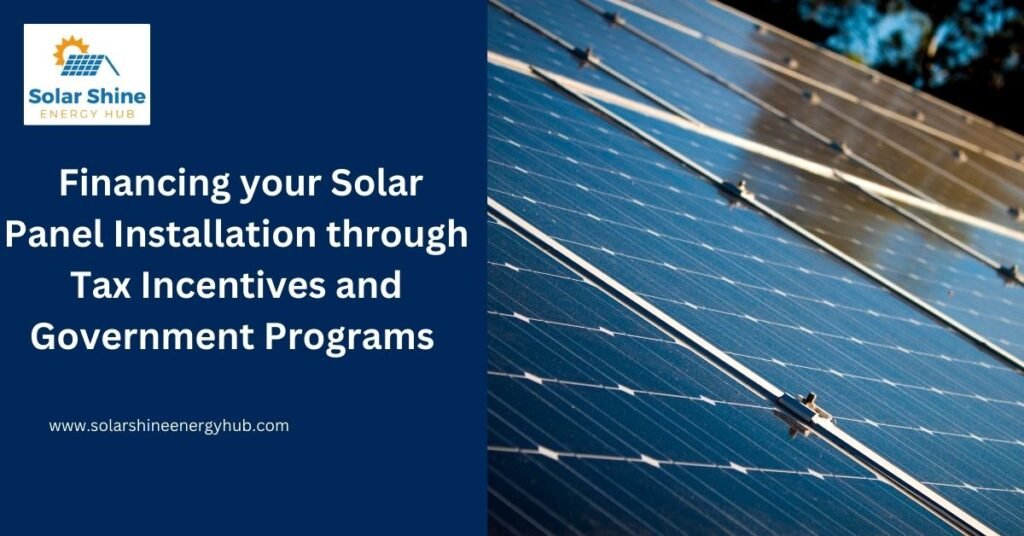
Federal Investment Tax Credit (ITC): The ITC is a federal tax credit union for solar energy systems on residential and commercial properties. Its current rates allow you to deduct 26% of the cost of installing a solar excess energy upgrades system from your federal tax incentive.
State-Specific Solar Incentives: Many states offer additional incentives, such as property tax credit exemptions, cash rebates, or performance-based incentives that provide solar panel owners with benefits based on their system’s performance.
Local Utility Solar Incentives: Several utility bill companies provide financial tax incentives for their customers to install solar panels. These incentives may come in the form of discounted energy lowest rates, net metering, or rebates.
Solar Renewable Energy Certificates (SRECs): In some states, you can earn SRECs for the electricity your solar system produces. These can be sold to utility bill companies, providing an additional income stream.
Conclusion Can I refinance my house with solar panels?
In conclusion, transitioning to a solar energy grid is not only an environmentally conscious decision but also a shrewd financial move. With various incentives and financial programs available, homeowners can significantly lower their energy grid costs while contributing to a sustainable future. Remember, the decision to go solar is an investment in our planet’s health and financial well-being today, and enjoy the multitude of benefits that the solar energy grid has to offer.